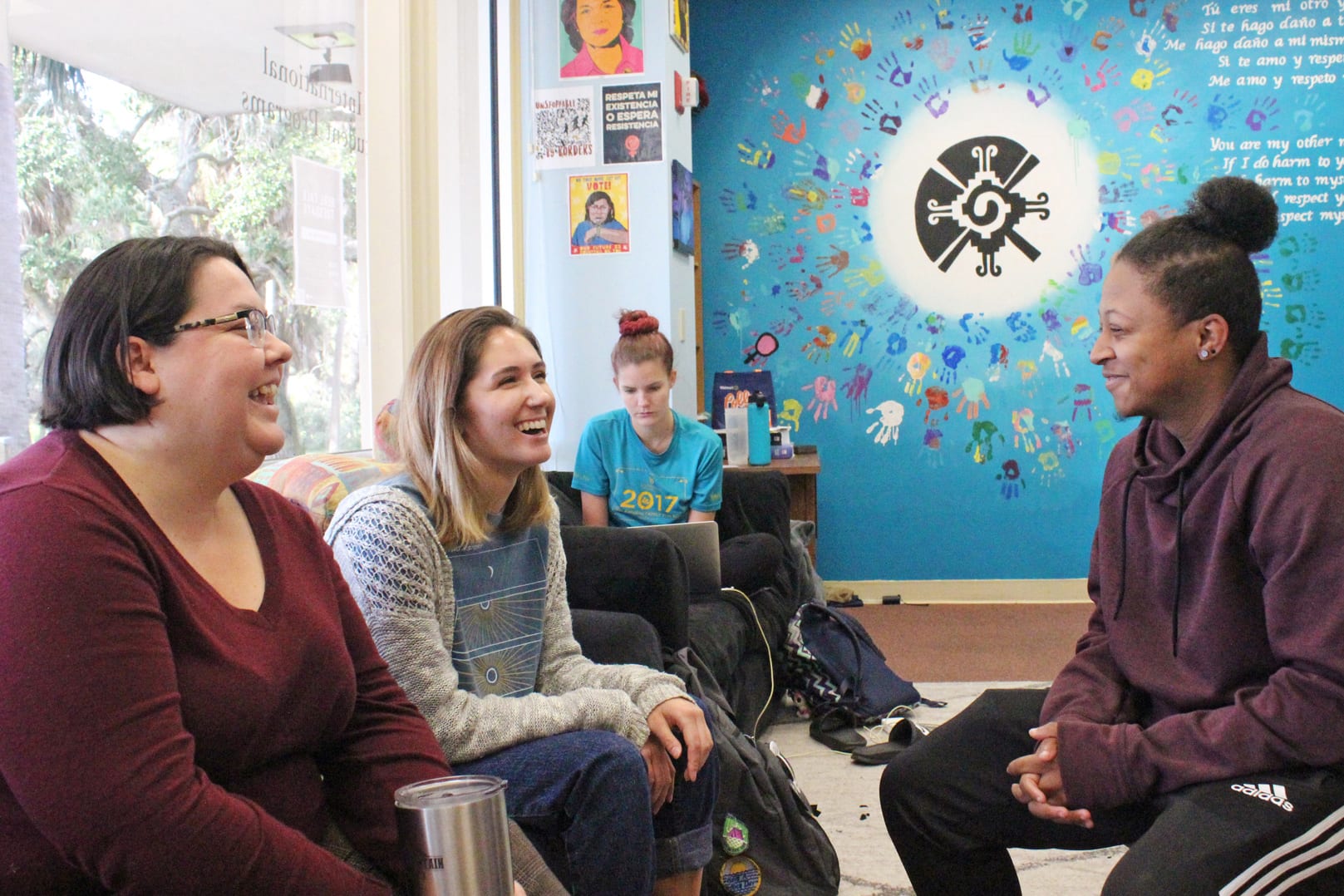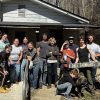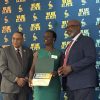“You don’t know what you don’t know,” said Cedrica “CJ” Jackson, a communication and psychology sophomore from Tampa, as she hustled across campus from her job at Starbucks to her next task.
Being the first in her family to attend college, she felt overwhelmed when filling out financial aid forms for the first time, learning how loans worked and even studying for exams. According to a 2018 report from the National Center for Education Statistics, first-generation college students face significant challenges to academic success—such as “understanding the significance of the syllabus, what “office hours” means, or how to cite sources in written assignments”—and are less likely than students whose parents attended college to complete their degrees.
Eckerd College, while offering a wealth of academic support to all students, didn’t offer anything special for students like CJ until the First Generation Student Initiative (FGSI) launched in September. She liked it and wanted to see more of it, so she started a club.
Recently chartered through the Eckerd College Organization of Students (ECOS), the First Gen Club is open to all at Eckerd but will “serve as a community where questions can be asked, resources will be supplied, and volunteering will be geared toward the upcoming first-generation students in the surrounding areas and to all students who want to learn about the
first-gen experience,” according to its bylaws.
“[Having a club] pushes inclusivity and fairness for those who don’t come from backgrounds that can be supportive or helpful to a college student,” CJ said. “You might not have had a support system, but now you do.”
The founding of the club was spurred by attendance at events sponsored by the FGSI—in response to the number of students represented in that group at Eckerd.
“Twenty-one percent of the current first-year class is first generation,” said Chelsea Creaturo, a research analyst in Eckerd’s Office of Institutional Effectiveness. “That really motivates us to do this work to make sure this population isn’t overlooked.”
Helmed by Creaturo, Diversity and Inclusion Coordinator Morgan Harthorne and Assistant Professor of Sociology Lisa Miller, Ph.D.—all of whom are first-generation college grads—the initiative’s first goal was to build a framework for student support and community. The group hosted a mixer during the beginning of the semester that included students, faculty and staff who were first generation. Ten faculty and 17 staff responded to the call.
“A big part of what we’re doing is trying to make the students feel less alienated in this environment where many students come from wealthy backgrounds and have more resources,” said Miller.
Harthorne said the support the initiative offers will affect the students’ lives well after they leave Eckerd College. “I wasn’t properly counseled about loans when I was an undergraduate in New England, and I felt like I couldn’t approach my professors when I needed help in my classes,” she recalled. “The big piece is the social support aspect. Having faculty and staff offer office hours to first-gen students or have an open-door policy so they can explain how things work at a college will be a major help.”
In addition to the mixer, the initiative screened the film First Generation in the Environmental Studies Sheen Auditorium on Nov. 4 and hosted post-film talkback with first-gen faculty and staff.
“It was really after the movie that we decided to form the club,” said Bree Walton, vice president of the First Gen Club and a junior human development and sociology student from Washington, D.C. “It’s been difficult for me because while the people I hang out with are first generation, the people in my classes are not. And that disconnect makes my experience hard for people to understand.”
Bree said he hopes to be a resource for first-year students and incoming students about navigating the college experience. “I want to help as someone who understands what it’s like,” Bree added. “They might feel isolated and very lonely, like they don’t belong, but that’s not true.”
As a part of building the community, faculty and staff members will be supplied “Safe Zone”–style first-gen stickers for their office doors to let students who may be first gen know that the person behind the door has been in their situation, Miller said.
Creaturo, a University of South Florida–St. Petersburg grad, said she spent two years slogging through college before she forced herself to join the TRIO program, a federally managed collection of services for students from disadvantaged backgrounds. “I think to myself, If only I had those resources sooner,” she said.
Resources and community will continue to grow through the FGSI and First Gen Club, CJ affirmed. “If you’re a first-gen student at Eckerd College, you are not alone. If you’re feeling lost, or you think you’ve got it all figured out, we’ll be here. You will always have this support system.”













